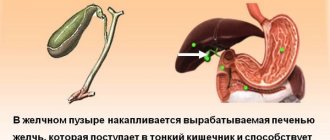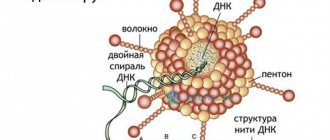Causes and symptoms of diarrhea during pregnancy
Infectious.
The cause of intestinal dysfunction can be bacterial and viral infections (for example, norovirus or rotavirus). They are usually transmitted through the air or the fecal-oral route. Pathogenic microorganisms also often enter the gastrointestinal tract when consuming low-quality foods or contaminated water. Infectious diarrhea during pregnancy in the second and third trimester may be accompanied by fever, chills, nausea and vomiting, painful abdominal cramps, and general weakness. An admixture of mucus often appears in the stool.
Non-infectious.
This form of diarrhea can be caused by a variety of factors: changes in diet, frequent stress, disturbances in the processes of digestion and absorption, certain chronic diseases, and taking certain medications. In this case, the pregnant woman may be bothered by frequent bowel movements (sometimes with imperative, i.e., strong, irresistible urges), abdominal pain in the upper or lower section. With organic lesions of the colon, an admixture of blood sometimes appears in the stool. In later stages, disturbances in the frequency of bowel movements may be associated with fetal pressure on the gastrointestinal tract.
Up to contents
Why is diarrhea dangerous during pregnancy?
Let's look at the consequences that diarrhea can lead to at different stages of pregnancy.
In the first trimester
Diarrhea in early pregnancy can lead to very negative consequences. Contraction of the intestinal walls can be transmitted to surrounding organs, thereby causing spasm of the uterine body. With severe cramps, this can lead to termination of pregnancy.
Infectious diarrhea at the beginning of pregnancy can negatively affect the development of the fetus. The infection can penetrate the amniotic membranes and cause the development of congenital pathologies.
In the second trimester
Diarrhea that appears in the middle of pregnancy can be dangerous due to the development of premature labor. It is important to stop the process of contraction of the intestinal walls so as not to provoke uterine hypertonicity.
An accompanying symptom of diarrhea is the development of dehydration. Thickening of the blood can lead to the formation of blood clots in small arteries. This is dangerous due to blockage of the blood vessels of the placenta.
In the third trimester
In the last stages of pregnancy, the development of diarrhea may indicate the onset of labor. Moreover, if it begins before the 37th week, then this is fraught with the birth of a premature baby.
Diarrhea can also occur due to increased pressure from the uterus on the gastrointestinal tract. It is important to monitor changes in the color of feces. A change in color may indicate the development of an intestinal infection.
Diagnostic features
When diagnosing the disease that caused diarrhea, it is important to exclude surgical, urological and obstetric pathologies. To do this, an examination is required; if necessary, the doctor prescribes additional examination. Diarrhea in the early stages can be a manifestation of ectopic pregnancy, appendicitis, urinary tract infections, pyelonephritis, inflammatory bowel diseases, acute pancreatitis. That is why it is important to promptly establish the cause of intestinal dysfunction and select adequate therapy. Monitoring (monitoring) of the condition of the fetus at 37, 38 and 39 weeks of pregnancy is also mandatory.
Up to contents
Consequences of diarrhea
Prolonged diarrhea can lead to dehydration, a condition that is dangerous for both the expectant mother and the fetus. It is manifested by severe weakness, dry mucous membranes, and thirst. Severe dehydration may affect cardiac and respiratory function. Diarrhea can also, in some cases, increase the risk of miscarriage due to increased contractile activity of the uterus and can lead to disruption of uteroplacental blood flow.
Up to contents
Consequences of intoxication for mother and child
The main danger of poisoning is dehydration. The loss of macro- and microelements necessary for the body during this period threatens to disrupt the functioning of many systems and organs. A lack of magnesium leads to impaired blood pressure, increased uterine tone and premature birth. Blood thickening often causes thrombosis. In addition, the concentration of hormones in the blood increases. High levels of oxytocin stimulate contraction of the uterine muscles, frequent vomiting strains the abdominal muscles, resulting in an increased risk of miscarriage.
Lack of nutrients negatively affects the development of the embryo. Toxins can enter the unborn child's body through the bloodstream.
Directions of treatment
The doctor must decide how to treat diarrhea, taking into account the woman’s condition, the cause of indigestion, the duration of pregnancy and other factors. Typically therapy includes the following areas.
| Restoration of water and electrolyte balance | Replenishing fluid deficiency in pathologies accompanied by diarrhea is an important measure to prevent severe and life-threatening conditions. To restore water and electrolyte balance, pregnant women, on the recommendation of a doctor, can drink still mineral water or rehydration solutions. The latter contain salts necessary for the body, which are removed from it along with the liquid. It should be borne in mind that if you are severely dehydrated, drinking a salt solution may no longer be enough. In this case, rehydration drugs are infused intravenously (in a hospital setting, if recommended by a doctor). |
| Detoxification | To reduce the burden on the body, it is necessary to help it get rid of toxic substances. In some cases, gastric lavage is performed for this purpose. You can also take enterosorbents strictly as prescribed by your doctor. These drugs, passing through the gastrointestinal tract, can bind toxic substances and promote their removal from the body naturally. By themselves, such drugs do not interact with the mucous membrane of the intestine or other parts of the digestive tract. |
| Restoration of normal intestinal microflora | To normalize the processes of digestion and absorption, it is necessary that beneficial bacteria be present in the intestines. They can be obtained through food (for example, fermented milk products with live cultures). In addition, according to indications, the doctor may prescribe probiotic drugs that help restore the intestinal microflora. |
| Eliminating the cause of diarrhea | If frequent bowel movements are a symptom of a bacterial infection, antibacterial medications may be used for treatment. Such remedies can help eliminate the cause of diarrhea by destroying pathogenic microorganisms. The drugs are used strictly as prescribed by the doctor. |
Up to contents
How to treat diarrhea
If diarrhea does not stop, then it is necessary to establish the cause and select treatment. Only the attending physician has the right to prescribe medicine.
Drug therapy for pregnant women should be under the supervision of a physician. Many drugs are contraindicated due to pregnancy, especially in the first weeks. If possible, treatment is carried out by prescribing a dietary menu, using traditional methods. Traditional medicine should be taken no less seriously. Not all herbal remedies are suitable for pregnant women. Starting from the 35th, 36th week of pregnancy, some medicinal plants can cause contractions and premature birth.
Antibiotics are prescribed as a last resort if the disease without serious treatment will cause more harm to the mother and child. The treatment method is determined by the doctor. During the period of recovery of the body, it is necessary to constantly observe a gynecologist.
Depending on how long the woman has, the optimal treatment is selected.
During pregnancy, a woman is advised to follow a proper diet, choose quality products, and eliminate junk food.
Medicines for diarrhea during pregnancy
Adsorbent drugs will help remove toxic compounds from the body. During pregnancy, Enterosgel, Polyphepan, Activated Charcoal (in purified form White Charcoal) are allowed. Sorbents are not recommended for use simultaneously with other medications. The time interval must be respected.
If there is a risk of dehydration, you can take rehydration solutions: Regidron, Trisol. They restore water-salt balance and promote fluid retention from the body.
Papaverine and No-shpu are used to relieve stomach cramps. As a sedative - valerian, motherwort. Take these medications only with the permission of a doctor.
To restore the gastric microflora, probiotics are prescribed - Linex-Forte, Bifidumbacterin, Biogaya.
In the third trimester of pregnancy, the doctor may prescribe Imodium, Enterobene, Loperamide for diarrhea.
Intestinal infections in pregnant women are allowed to be treated with an antimicrobial drug - Nifuroxazide. If necessary, other tablets may be prescribed at the discretion of the doctor.
Remember! If diarrhea is caused by intestinal infections, food poisoning, you should not immediately stop loose stools or drink astringents. The body must be cleansed of pathogenic microorganisms and toxins.
When is hospital treatment required?
It is not always possible to treat a disease accompanied by diarrhea at home. In case of severe dehydration, risk of miscarriage, or severe concomitant diseases, the doctor may suggest that the pregnant woman go to the hospital. This measure allows for constant medical supervision, which in such cases is often simply necessary. Urgently seeking medical help and emergency hospitalization may be necessary if:
- severe abdominal pain of any localization;
- blood in stool;
- general lethargy.
The standard clinical indications for inpatient treatment are moderate to severe diarrhea accompanied by dehydration. It is also necessary to go to the hospital if therapy at home for 3-4 days does not produce results (the pregnant woman does not get better, symptoms persist).
Important! Even in an outpatient setting, treatment of conditions accompanied by diarrhea should be carried out under the supervision of a physician.
Up to contents
Why might a pregnant woman have diarrhea?
There are many factors that cause intestinal dysfunction; in a pregnant woman it can be caused by special reasons:
- Toxicosis. It is considered normal in the early stages, and is often accompanied by various dyspeptic symptoms, including diarrhea. The reason may be a change in the food priorities of the expectant mother, intolerance to certain foods and the emergence of strange eating habits.
- Hormones. An increase in the production of certain hormones can affect the functioning of the gastrointestinal tract. In the last days, diarrhea can be a harbinger of childbirth - the body has mechanisms for natural bowel cleansing.
- Reorganization of the body. The growing uterus puts pressure on the lower abdomen, which affects the digestive processes - both diarrhea and constipation occur.
- Changes in diet. A pregnant woman's diet should be varied and contain a large amount of nutrients. The need to eat foods that were not on the menu before pregnancy can cause diarrhea. In addition, expectant mothers are often haunted by the desire to eat incompatible dishes (for example, watermelon with milk) - this is also a common cause of the disorder.
- Medicines. Taking vitamin complexes or medications may have side effects, including diarrhea. If such a symptom is observed during the course of treatment, you should discuss with your doctor a dose adjustment or complete discontinuation of the drug.
- Psychogenic factors. Pregnant women are susceptible to frequent mood swings, unreasonable anxiety and other manifestations of anxiety. Therefore, nervous diarrhea is not uncommon.
- Viruses and bacteria. During pregnancy, the body's defenses weaken and do not provide adequate resistance to microbes, in particular those that cause intestinal diseases. Therefore, if, against the background of diarrhea, the body temperature rises, there is severe pain in the abdominal cavity, there is vomiting or an unusual type of stool (with blood, mucus), you should immediately contact a doctor.
Diet
When treating diarrhea, it is very important to adjust your diet to reduce the load on the digestive tract and help the body cope with the problem faster. In case of intestinal dysfunction, accompanied by frequent bowel movements, spicy, sour, and fatty foods are excluded from the diet. If you have an intestinal disorder, you should not consume whole milk, fresh fruits and vegetables, legumes, sweets, spices, or smoked snacks. Liquid, semi-liquid, pureed and steamed foods are allowed. They should be served warm, but not hot or cold. In the first days of infectious diarrhea, experts may recommend following a fasting diet. Then rice water and liquid porridge made from oatmeal or buckwheat are introduced into the diet.
Up to contents
Causes of food poisoning
Foodborne toxic infection belongs to the group of acute intestinal infectious diseases. Poisoning occurs when consuming contaminated food and water. In case of food intoxication, the stomach and small intestine take the main blow, resulting in the development of gastritis and gastroenteritis. Due to impaired absorption of substances by the walls of the gastrointestinal tract, a water-salt imbalance occurs. Dehydration and other equally dangerous complications quickly set in.
Food poisoning is transmitted through the oral-fecal route. Pathogenic microorganisms are introduced into food and water by infected people with their hands and household items. Animals are often carriers of bacteria.
You can get poisoned throughout the year. As a rule, the peak incidence occurs in the spring and autumn. During the warm months, ideal conditions are created for the life of infectious agents.
Often, poisoning occurs after eating low-quality food that was prepared in violation of sanitary standards. Sometimes symptoms of toxic infection appear when consuming expired products. First of all, this applies to fermented milk and canned products.
The most common causative agents of gastrointestinal diseases are:
- staphylococci;
- streptococci;
- Proteus;
- Klebsiella;
- coli;
- clostridia.
You can also be poisoned by fresh fruits, vegetables or berries treated with pesticides and herbicides. Patients with severe intoxication who have eaten poisonous mushrooms and plants are often brought to medical institutions. Typically, the peak of requests occurs in the second half of summer and autumn. Chemical poisoning poses a particular danger to pregnant women. Toxins carried by the bloodstream can easily overcome the placental barrier and enter the fetus’s body, which will inevitably lead to defects in its development. Severe intoxication often causes miscarriage.
Pregnant women are at increased risk for developing acute digestive disorders. This is explained by the natural weakening of immunity during gestation. In addition, pregnant women often want to try unusual foods. They, without thinking about the consequences, consume foods that are often unsuitable for food.
Is it possible to use IMODIUM® Express in early pregnancy?
IMODIUM® Express is an antidiarrheal drug in the form of lozenges. The active substance of the drug is loperamide, which has no data on its teratogenic or embryotoxic effects. However, the drug cannot be used at any stage of pregnancy. According to the instructions, use is not allowed in the first trimester and during breastfeeding1. In the second and third trimesters, IMODIUM® Express can only be taken on the recommendation of a doctor1. An antidiarrhea drug is prescribed only if the expected benefit to the woman outweighs the risk to the fetus. Before use, you should consult a specialist and read the instructions.
The information in this article is for reference only and does not replace professional advice from a doctor. To make a diagnosis and prescribe treatment, consult a qualified specialist.
1 According to the instructions for medical use of the drug IMODIUM® Express.
* Among products based on Loperamide. Based on sales in money for February 2021 - January 2021, according to IQVIA (from English IQVIA).











